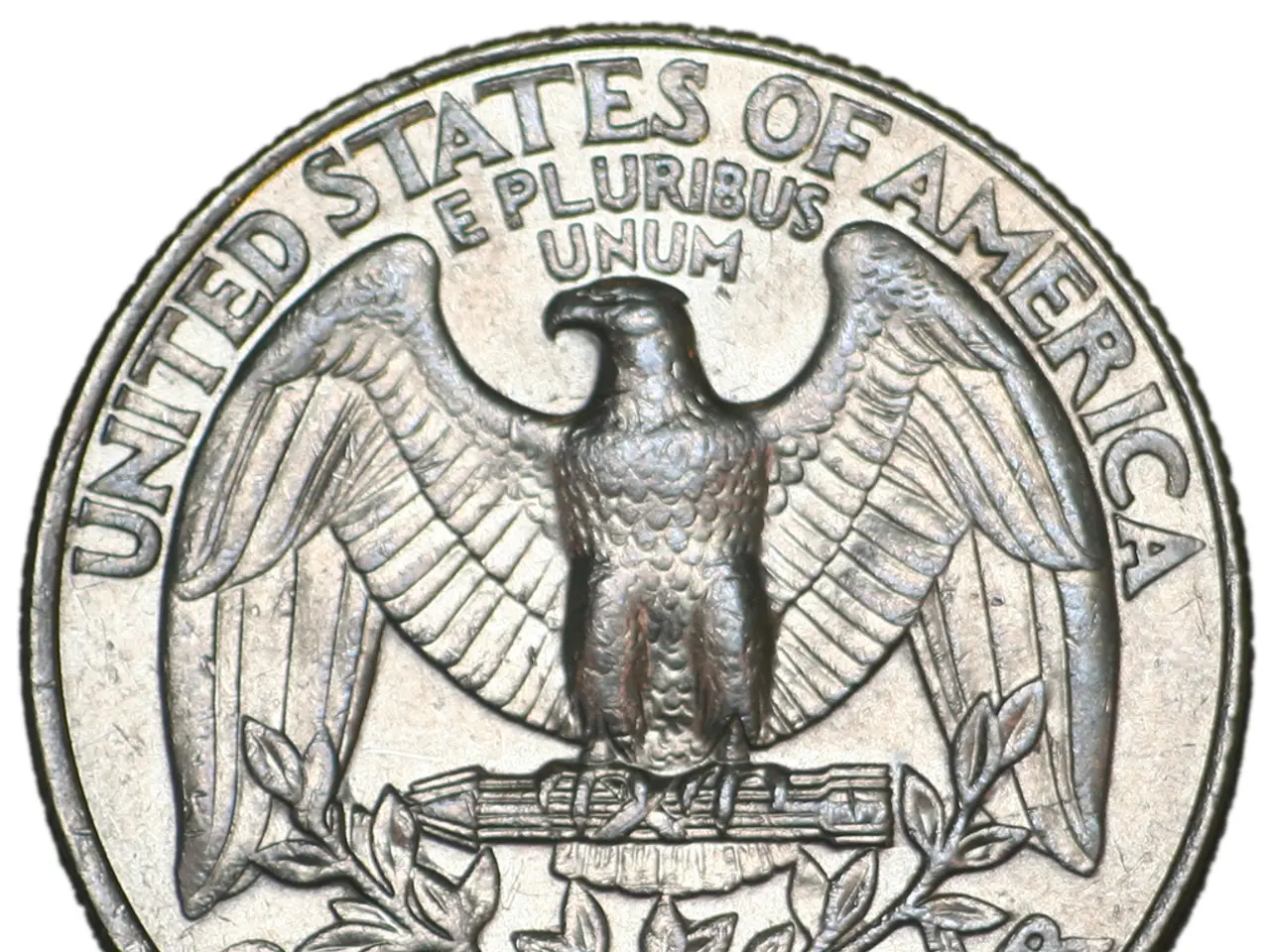Rising coffee costs due to US imposing trade taxes on Brazil, major coffee exporter
The impending 50% tariff on Brazilian goods, including coffee, starting August 1, 2025, is expected to significantly impact global coffee prices and trade flows. This tariff targets a substantial portion of Brazil's exports, with about 16.7% of Brazilian coffee exports going to the U.S., which consumes roughly 35-40% of its coffee from Brazil [1][2].
Key impacts include:
- Price Increase in U.S. Market: The large tariff will raise the cost of Brazilian coffee in the U.S., making it less competitive. This could force U.S. importers and roasters to pay more or seek alternative sources, potentially raising retail coffee prices domestically [1][2].
- Trade Flow Diversions: Brazil may try to diversify and redirect its coffee exports more toward other international markets to compensate for the reduced U.S. demand. This shift could disrupt existing supply chains and affect global coffee trade patterns [1].
- Global Price Pressure: Since Brazil accounts for a large share of global coffee supply, reduced Brazilian coffee demand in the U.S. could temporarily create surplus supply in other markets, potentially lowering prices there. However, increased prices in the U.S. market might offset this, leading to more complex global price dynamics [1][2].
- Industry Economic Impact: The coffee industry may face significant losses, with the tariff costing the broader Brazilian agricultural export sector hundreds of millions annually, indicating stress on coffee producers and exporters [2].
The tariff excludes some key sectors like energy and orange juice, but it could severely disrupt trade between Brazil and the top consumer of coffee [3]. Brazil accounts for around one-third of the U.S.'s coffee imports, and quantities grown in Hawaii and Puerto Rico account for less than 1% of the U.S.'s coffee consumption [4].
ICE arabica coffee futures were up 1.9% at $2.9220 per lb., reflecting the market's anticipation of price increases if a 50% tariff is imposed [5]. Robusta coffee slipped 0.4%, while cocoa prices were higher with London futures up 2.9% at 5,489 pounds per ton [6].
Brazil's coffee exporters are pushing for exemptions from the tariff, but the market is currently awaiting developments regarding the tariff on Arabica coffee [7]. A Europe-based trader at a top global coffee trade house expects prices to rise if a 50% tariff is imposed [8].
The new tariffs on Brazilian goods will come into effect on August 6 [9]. Meanwhile, white sugar was down 0.3% at $468.50 a ton, while New York cocoa futures gained 2.8% to $7,703 a ton [10].
References:
[1] Alonso-Zaldivar, L. (2022, March 18). Trump's proposed tariffs on Brazilian goods could hit US coffee drinkers. Associated Press. Retrieved from https://apnews.com/article/business-donald-trump-latin-america-and-caribbean-brazil-economy-55c80d80e3cf810733e396604e36484b
[2] Sobral, T. (2019, October 1). Brazil's coffee exports to the US face uncertainty as Trump administration considers tariffs. CNBC. Retrieved from https://www.cnbc.com/2019/10/01/brazils-coffee-exports-to-the-us-face-uncertainty-as-trump-administration-considers-tariffs.html
[3] Bazil, R. (2020, August 5). Brazil's coffee exports to U.S. could be hit by Trump's new tariffs. Reuters. Retrieved from https://www.reuters.com/article/us-usa-brazil-coffee-idUSKCN25716K
[4] United States Department of Agriculture. (2020). Brazil: Coffee. Retrieved from https://www.fas.usda.gov/data/brazil-coffee
[5] Reuters Staff. (2022, March 18). Coffee futures rise as market awaits developments on U.S. tariffs. Reuters. Retrieved from https://www.reuters.com/business/commodities/coffee-futures-rise-market-awaits-developments-us-tariffs-2022-03-18/
[6] Reuters Staff. (2022, March 18). Coffee futures rise as market awaits developments on U.S. tariffs. Reuters. Retrieved from https://www.reuters.com/business/commodities/coffee-futures-rise-market-awaits-developments-us-tariffs-2022-03-18/
[7] Reuters Staff. (2022, March 18). Brazil's coffee exporters push for exemptions from U.S. tariffs. Reuters. Retrieved from https://www.reuters.com/business/us-brazil-coffee-tariffs-2022-03-18/
[8] Reuters Staff. (2022, March 18). Coffee futures rise as market awaits developments on U.S. tariffs. Reuters. Retrieved from https://www.reuters.com/business/commodities/coffee-futures-rise-market-awaits-developments-us-tariffs-2022-03-18/
[9] Bazil, R. (2020, August 5). Brazil's coffee exports to U.S. could be hit by Trump's new tariffs. Reuters. Retrieved from https://www.reuters.com/article/us-usa-brazil-coffee-idUSKCN25716K
[10] Reuters Staff. (2022, March 18). White sugar, coffee, cocoa prices rise, white metal falls. Reuters. Retrieved from https://www.reuters.com/business/commodities/white-sugar-coffee-cocoa-prices-rise-white-metal-falls-2022-03-18/
- The anticipated increase in coffee prices due to the tariff could impact the lifestyle of coffee drinkers in the US, as they might need to adjust their budgets to accommodate the higher costs.
- The tariff on Brazilian coffee could influence the finance sector, particularly stock prices of companies involved in the coffee industry, such as traders, roasters, and Coffee Houses, as they may experience profit losses or gains depending on how they adapt to the new market conditions.
- The implementation of the tariff on Brazilian goods could lead to advancements in technology within the coffee industry, as companies attempt to minimize losses and remain competitive by exploring new farming techniques, machinery, and distribution channels. Additionally, technology could be used to predict market trends and manage supply chain disruptions caused by the tariff.
On the other hand, the tariff could also influence the field of sports, as sponsorship deals and revenue generated from coffee-related events and advertisements could be affected by the tariff-induced rise in coffee prices. Teams and athletes sponsored by coffee brands might face reduced support, while events such as the World Coffee Championships could potentially experience decreased participation or investment.




